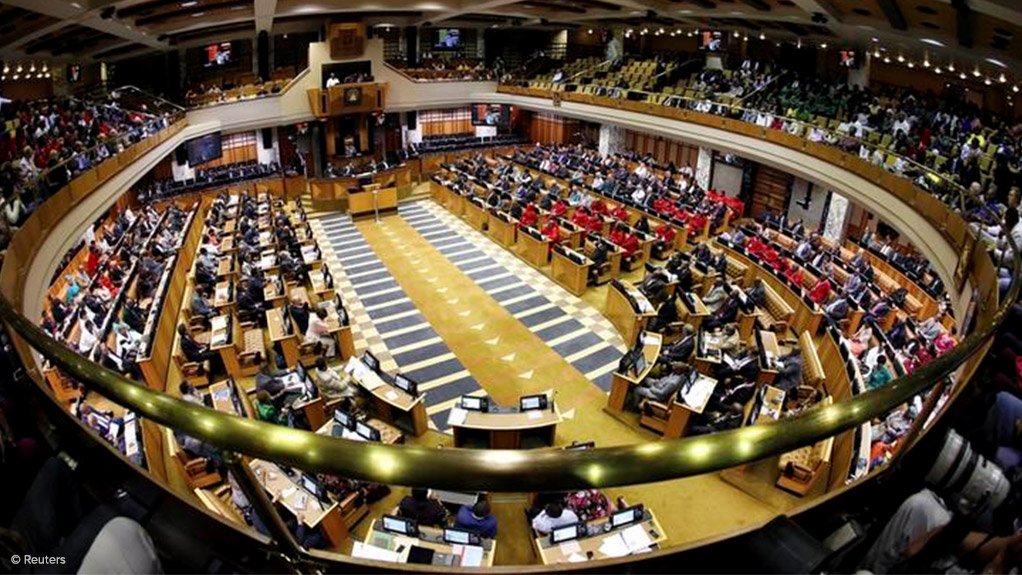There is no risk for Members of Parliament (MPs) who openly vote against President Jacob Zuma if they truly believe they have lost confidence in him, his lawyer argued in the Constitutional Court on Monday.
The assumption that MPs would vote differently in a vote of no confidence if it were to be conducted in secret, was wrong, Ishmael Semenya argued before a full bench.
“There’s a subliminal assumption that voting with a whip is not in line with voting with one’s conscience.”
He dismissed the argument that MPs faced repercussions and placed themselves at risk if they openly voted against the party line.
“This risk, we don’t know its magnitude. They may be able to handle this risk.”
He was arguing in the United Democratic Movement’s (UDM's) bid for the court to order National Assembly Speaker Baleka Mbete to conduct the vote by secret ballot.
Semenya was the last to make his representations after almost 10 hours of arguments.
After Zuma’s March 30 Cabinet reshuffle, the opposition asked National Assembly Speaker Baleka Mbete to schedule a vote of no confidence in Zuma. It was set down for April 18. The opposition however asked for it to be postponed pending the application to the court for the vote to take place in secret. Opposition parties hope this would encourage enough African National Congress MPs to vote against Zuma for it to succeed.
UDM leader Bantu Holomisa had argued that Zuma’s reshuffle led to two ratings agencies downgrading the country’s debt to junk status. In addition, he said MPs had been threatened with losing their seats and with violence if they voted against him.
Purpose is to protect voters
Mbete previously said the UDM’s application had no merit and it did not fall within the court's exclusive jurisdiction.
She said if the court found she had the power to order a motion of no confidence via secret ballot, she would act in accordance with its ruling.
On Monday, Marumo Moerane, for Mbete, told the court that she was bound by the decisions of the National Assembly and could not override them.
Chief Justice Mogoeng Mogoeng asked Moerane if, based on the provisions in the Constitution, it was permissible for the National Assembly to conduct the vote by secret ballot.
“It is permissible, if the National Assembly decides to do it that way. The issue is if it is obligatory,” Moerane said.
“Our submission is that there is no such obligation flowing from the Constitution.”
He said the National Assembly had determined its own rules and it, and not the courts, should decide how to conduct a motion of no confidence.
Dali Mpofu, for the UDM, implored the court to look at the section in the Constitution which explains the purpose of the protection of a secret ballot.
“It must give us the best accountability. The purpose is to protect the voters from being rendered toothless,” Mpofu said.
He said the entire matter was simply based on the interpretation of the Constitution.
Mogoeng asked the legal teams whether such a vote, which had the potential of destabilising the country, should not be an open one, considering the repercussions.
He asked whether the UDM and other opposition parties were not asking the court to overstep its authority.
“What entitles us to do that? What law allows us to do that? Should we order the National Assembly to do something, or should we just provide clarity?
“Would it not amount to overreach? Is that space not reserved for the National Assembly?” Mogoeng asked.
Geoff Budlender, for the Council for the Advancement of the SA Constitution, said their request was merely for the court to make it clear that Mbete was obliged to exercise her discretion.
“When the Speaker receives a request for a secret ballot, she has an obligation to go back and look at the rules. When it comes to a motion of no confidence, the Constitution only allows one way out, which is a secret ballot,” Budlender said.
Mogoeng reserved judgment.
EMAIL THIS ARTICLE SAVE THIS ARTICLE
To subscribe email subscriptions@creamermedia.co.za or click here
To advertise email advertising@creamermedia.co.za or click here











